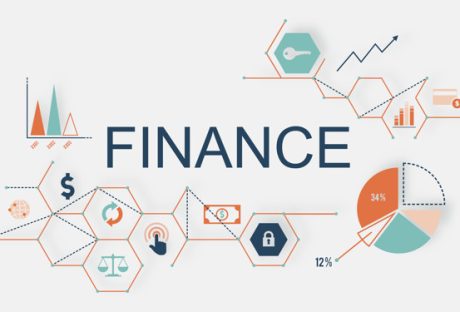The Graduate Record Examinations (GRE) assesses a graduate school applicant’s aptitude. They range from verbal skills and mathematical skills necessary to succeed in their higher education.
Test-takers work through five total sections: one Analytical Writing, two Quantitative Reasoning, and two Verbal Reasoning sections.
Especially if you don’t have a background in a writing and reading-intensive discipline. Plus, the Verbal Reasoning portion of the exam can be quite challenging.
Many GRE test-takers don’t know where to get started with improving their reading comprehension skills.
What is Verbal Reasoning?
According to the official GRE website, the Verbal Reasoning section “assesses your ability to evaluate and analyze with written material.
Then it checks how you synthesize information you obtain through analyzing relationships within sentences and recognize relationships among words.
The two Verbal Reasoning sections of the exam have 30 questions each and give test-takers 20 minutes to complete them.
They include the following types of questions to test the skill sets described above:
1. Reading Comprehension Questions
Throughout the Verbal Reasoning section, test-takers will encounter three different subtypes of reading comprehension questions:
- Traditional multiple-choice questions with five choices and one correct answer.
- More complex multiple-choice questions with three choices and either one, two, or three correct answers. No partial credit is given for identifying some but not all the correct options.
- Select-in-passes questions, where the exam taker reads a short passage and then answers questions about the specific function of sentences within the text.
2. Text Completion Questions
These questions are based on a passage with one to five sentences. Within these passages, one-, two-, and three-word spaces are left blank, and the test-taker must answer multiple-choice questions about which words would best complete the sentence if filled into the blank space.
3. Sentence Equivalence Questions
Each of these questions presents a single sentence with one word missing. The test-taker is given six choices of words that could fill in the blank.
Also, they must identify which two options, if chosen, would create sentences with equivalent meaning.
How to Prepare
Since the GRE tests aptitude and skill sets, not your knowledge of specific topics, many students find it difficult to strategize their studying.
When it comes to the Verbal Reasoning section, the following preparation methods can sharpen the skills that the section assesses.
1. Brush Up on Your Vocabulary
Vocabulary plays a big part in GRE’s success. Answering text completion and sentence equivalence questions becomes quite challenging if you aren’t familiar with the answer options.
Additionally, strong vocabulary skills will help you easily parse the complex passages included in the reading comprehension questions.
There are two steps to improving your vocabulary skills: simple memorization and vocab-in-context.
You can use flashcards with word definitions to help with memorization, and you can read dense materials or study vocabulary words within complete sentences to practice the latter.
2. Take Practice Tests
Practice tests are a great way to know where you stand. It will help you learn about your strengths and weaknesses and how much you must improve to achieve a higher score.
It will also guide you in deciding how rigorously you will have to work on your existing vocabulary skills.
Consider using guides and reference books like Kaplan GRE study books to practice with questions that accurately simulate the difficulty of the exam.
3. Pacing and the Process of Elimination
When taking practice tests, focus on your pacing throughout the Verbal Reasoning section.
Get a gauge for how long the passages typically take to read and understand and how long each type of question takes you to answer.
To get through questions faster, work on your process-of-elimination strategies.
It’s also important that you recognize when you simply don’t know the answer to a question and are better off choosing a random answer than spending too much time on it.
4. Markup the Text
One mistake most test-takers make when reading through a passage is not making simple annotations, which results in them having to reread the passage.
It will save precious time to take to circle or underline important points or keywords while going through the text the first time.
5. Stick to the Text and Information Given
Never get carried away by your opinions or background knowledge when dealing with a critical reasoning question based on a given passage.
The passages present all the information you need—assuming information can lead you astray.
6. Tacking Test Day
The most effective way to prepare for all sections of the GRE is to familiarize yourself with the skills tested, types of questions asked, and pacing.
If you focus on these elements and take full-length practice tests to simulate the day of the test, you’ll know exactly what you’re up against and how to tackle every aspect of the exam.
How Does GRE Help Your Professional Life?
You might wonder, “How does spending time mastering these tricky verbal questions benefit me professionally?”
It’s a valid question, no doubt!
The skills you develop while preparing for the Verbal Reasoning section of the GRE aren’t just helpful in school. Yes, they are applicable to the real world. They can also impact how you communicate, think critically, and problem-solve.
Enhanced Communication Skills
Reading comprehension questions force you to read through the matter properly and understand it with a step-by-step approach.
Seriously, does anyone ever send you anything that is easily understood at work?
When you are working, you will be dealing with reports, proposals, and technical documents. In meetings or in emails, you need people to understand what you mean to say quickly. This is why GRE puts emphasis on that, as well as understanding and articulation.
Critical Thinking and Problem-Solving
The type of analytical reasoning you use to answer GRE questions is the same kind of thinking you’ll be doing if you’re in a position of leadership. Or you must make high-stakes decisions.
Whether you are interpreting data sets, inferring information from texts, or computing information from a graph or chart, you are likely to need those skills if you’re looking for insights about a market trend. Or even trying to draw conclusions based on project results.
Those kinds of higher-order reading skills are something you can develop in the GRE’s Verbal Reasoning section.
You’ll quickly realize that succeeding in the GRE prepares you for a similar competitive environment.
Something that will surface time and again in your professional existence. It can be a little difficult when you’re first starting out. However, you can find plenty of free online practice problems, and you must utilize them well.
Final Thoughts
Verbal Reasoning on the GRE is a project. Like everything else on this exam, you’ll need a blend of strategy, consistent practice, and mental discipline to achieve your maximum potential.
But if you take advantage of it, it can result in gaining skills that will be helpful throughout your academic & professional career beyond.
Whether we’re talking about writing better papers, reading more effectively, thinking through complex issues, or thriving under pressure, you can conquer them all.
Read Also:
- JEE Main 2018- Importance of Practicing with Previous Year Questions
- Excellent strategies to outshine in BPSC 2020 examination!
- 10 Tips to Memorize All Necessary Information Before Exams
- How To Crack Civil Service Exam In One Attempt
- Procedure To Download West Bengal Join Entrance Examination Admit Card






















